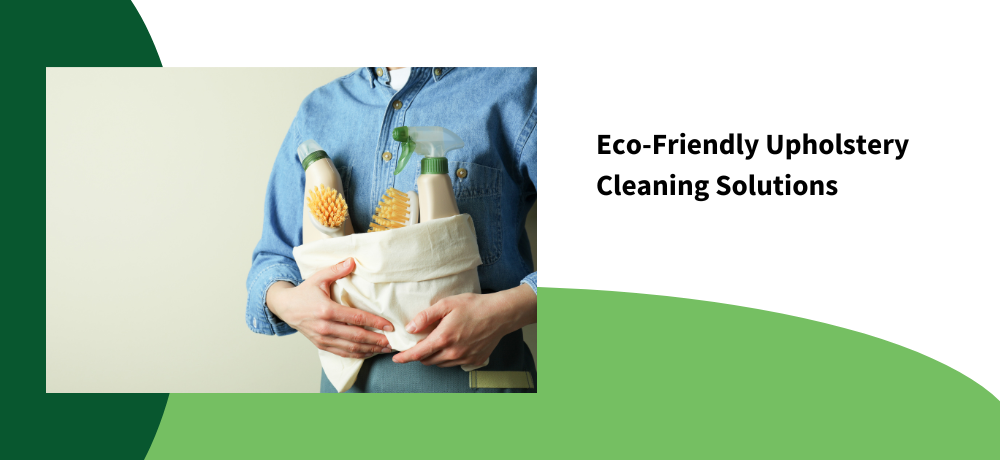Eco-Friendly Upholstery Cleaning Solutions

In a world increasingly conscious of environmental impact, the demand for sustainable practices extends to every facet of our lives, including cleaning routines. Upholstery, a common feature in homes and offices, requires regular maintenance to retain its allure. Embracing eco-friendly upholstery cleaning solutions not only contributes to a healthier planet but also ensures a safer environment for your family or workplace. In this blog, we explore the significance of adopting green cleaning methods for upholstery.
The Need for Sustainable Upholstery Cleaning
Upholstered furniture is susceptible to a myriad of pollutants, from dirt and allergens to stains and odors. Conventional cleaning products often contain harsh chemicals that can not only harm the environment but also pose health risks to those who come into contact with the treated surfaces. Eco-friendly upholstery cleaning solutions offer a compelling alternative by prioritizing the well-being of both people and the planet.
Biodegradable Cleaning Agents
One of the hallmarks of eco-friendly upholstery cleaning is the use of biodegradable cleaning agents. Unlike traditional cleaners that introduce harmful chemicals into the ecosystem, biodegradable solutions break down naturally, minimizing their environmental impact. Choosing upholstery cleaners with biodegradable ingredients ensures that your cleaning routine aligns with sustainable practices.
Reduction of Harmful Chemical Residue
Conventional upholstery cleaners often leave behind chemical residues that can linger on surfaces long after the cleaning process is complete. These residues may contribute to indoor air pollution and pose risks to respiratory health. Eco-friendly alternatives focus on using natural ingredients that leave minimal or no residue, providing a cleaner and healthier living or working environment.
Sustainable Cleaning Techniques
Steam Cleaning for Deep Cleaning without Chemicals
Steam cleaning is a highly effective and eco-friendly method for deep cleaning upholstery without the need for harsh chemicals. This technique utilizes hot water vapor to break down and lift dirt, stains, and allergens from upholstery fibers. Not only does steam cleaning provide a thorough cleaning, but it also eliminates the need for chemical-laden cleaning agents, making it a sustainable option.
Environmental Impact of Eco-Friendly Upholstery Cleaning
Conservation of Water Resources
Traditional cleaning methods often involve excessive water usage, contributing to water scarcity issues. Eco-friendly upholstery cleaning techniques, such as steam cleaning, use minimal water while still achieving excellent results. This not only conserves water resources but also reduces the environmental footprint associated with water consumption.
Lowering Carbon Footprint
Eco-friendly upholstery cleaning solutions often prioritize locally sourced, sustainable ingredients, minimizing the carbon footprint associated with transportation. Additionally, the reduced use of chemicals in the cleaning process contributes to lower emissions, making it a more environmentally friendly choice.
Embracing eco-friendly upholstery cleaning solutions is a commendable step towards a sustainable and healthier living or working environment. Whether you opt for professional services that prioritize green practices or create DIY cleaning solutions at home, reach out to ServiPlus. We work with brokers and realtors providing cleaning services to janitorial and maid companies for their residential customers. Make a conscious decision to protect your upholstery and the planet by adopting environmentally responsible cleaning practices. Upholstery longevity and eco-conscious living can go hand in hand – a choice that benefits everyone and everything.
Get in touch with us today
To learn more about what we do, please click here. To contact us, please click here or call us at (604) 731-2225.